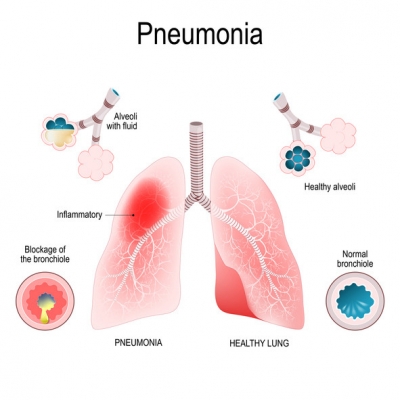
Pneumonia is an infection in one or both lungs. Bacteria, viruses, and fungi cause it.
The infection causes inflammation in the air sacs in your lungs, which are called alveoli. The alveoli fill with fluid or pus, making it difficult to breathe.
Bacteria, viruses, or fungi can cause pneumonia.
Common causes include:
- Flu viruses
- Cold viruses
- RSV virus (the top cause of pneumonia in babies age 1 or younger)
- Bacteria called Streptococcus pneumoniae and Mycoplasma pneumoniae
Some people who are in the hospital get “ventilator-associated pneumonia” if they got the infection while using a ventilator, a machine that helps you breathe.
If you get pneumonia while you’re in a hospital and aren’t on a ventilator, that’s called “hospital-acquired” pneumonia. But most people get “community-acquired pneumonia,” which means they didn’t get it in a hospital.
Picture Credit : Google

